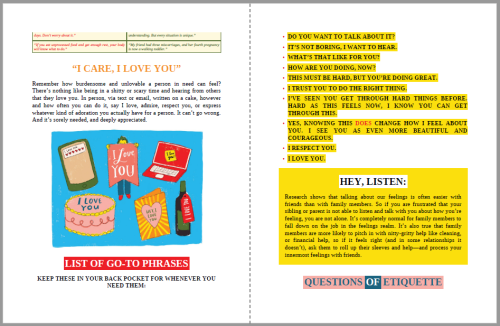Been There. Done That. Try This – Tony Attwood, Craig R. Evans
This book was written for autistic people who are really struggling with aspects of executive function. It seems to be a pretty comprehensive list of coping mechanisms crowdsourced from people on the spectrum, but I myself got little out of it because it’s for people with cases much more debilitating than mine.
It might not be my place to make this sort of critique, but a lot of the book seems to be about how to best conform to NT expectations, like ways to reduce the amount of stimming that one does. I don’t want autistic people to stim less, I want stimming to be more socially accepted. So as someone who’s been lurking in lots of anti-ableist parts of the internet for the better part of a decade, the book is less radical than I would like.
Asperger Syndrome and Employment – Sarah Hendrickx
Like the previous book, it’s advice dealing mostly with basic things that I’m well adjusted enough to know (like showing up in clean clothes and taking care of personal hygiene), and coping mechanisms for stressors that I either don’t have or already figured out. There are two useful nuggets that I’m stealing though:
- Getting accommodation without disclosure:
If you cannot work in a noisy environment, for example, you can say: ‘I work much better in a quieter environment, so I’m going to put these earplugs in/listen to some music/move my desk over there’. People are very accepting of this type of assertiveness. (p.136) - Pre-emptively addressing how eye-contact sucks for you.
Again, this doesn’t have to be a disclosure, but perhaps something like: ‘By the way, I find it much easier to concentrate when I’m not looking at a person’s face, so please excuse me not looking at you very much. I am listening to what you have to say.’ This seems a bit odd to say, but, believe me, it works. Once the issue has been brought out into the open, it stops others making wrong assumptions and reacting accordingly (negatively). (p.137)
Uniquely Human – Barry M. Prizant
A bit too “These ten stories of disabled children will inspire you” in tone; the target audience is caretakers of autistic children. The advice that is offered in it does seem decent and is respectful of the needs and autonomy of children, however.
I take some issue with the how he frames all the amazingly personalized, effective learning plans developed for specific kids: “[Child]’s success didn’t require extra money or radical innovation, just a teacher who paid close attention and had the instinct to see an enthusiasm as a strength.” (p.57)
Teachers who pay close attention in this way are expensive. This requires a lot of mental resources to pull off, and the teacher must trade off time with the rest of the class to execute whatever plan they come up with. I don’t mean to say that you must be a genius or a subject matter expert to properly accommodate kids on the spectrum, but I think trivializing the amount of effort required to provide personalized attention to each child is also counterproductive.
Neurotribes – Steve Silberman
This boy also had a fertile imagination and was daydreaming about rocket ships and other “fantastic inventions” long before they became a reality. This inspired Asperger to comment, “Here one observes how remote from reality autistic interests often are.” But the advent of space exploration in the 1950s required him to retract that statement in favor of a suggestion that the designers of spaceships themselves were autistic. (p.101)
I feel a bit let down thought because I got the impression that it was like, a manifesto for neurodiverse society? But instead it was just a fairly generic rundown of the history and current state of ASD. A good and mildly entertaining rundown, mind you, that covers the spectrum, the diagnosis, the (paltry amount of) science, the culture. But less radical than I was hoping for.
Again, probably would have gotten more out of it if I haven’t spent like, the last quarter of my life in disability advocacy circles.
There Is No Good Card for This: What To Say and Do When Life Is Scary, Awful, and Unfair to People You Love – Kelsey Crowe, Emily McDowell
Okay, this book is just objectively awful. I generally don’t say this about most books, recognizing that if I didn’t get much out of them it likely means that it wasn’t written for me. But this book is actually terrible at doing what it sets out to do, and I have trouble imagining that even an entirely NT person would get much out of it, unless they’re only reading it for the visual stimulation. Gave up 100 pages in, around halfway through the book.

The book begins by telling you that anything counts when someone is going through grief, and then continues by spending like 80% of the time telling you in no uncertain terms what NOT to do (re-enforcing your anxieties, thanks for that), and 20% giving you incredibly vague advice on how to do better.
The advice given is often contradictory. On one page you might be told that you can always just say ‘I’m sorry’ if you don’t have anything else to say. Two pages later you may come across a scenario, where Kelsey has committed the heinous crime of telling Angela that she is sorry, when instead she should have asked ‘how’s that going for you?’
Yes, occasionally, they’ll throw in a scenario/case study so they can demonstrate the dos and don’ts in a concrete manner, but in those cases it’s generally to specific to be very useful, and the authors provide zero guidelines for generalization. All in all, I’m very, very baffled that the book has 4.5 stars on goodreads. Would highly recommend skipping this one and going for Rosenberg’s Non-Violent Communication instead.
